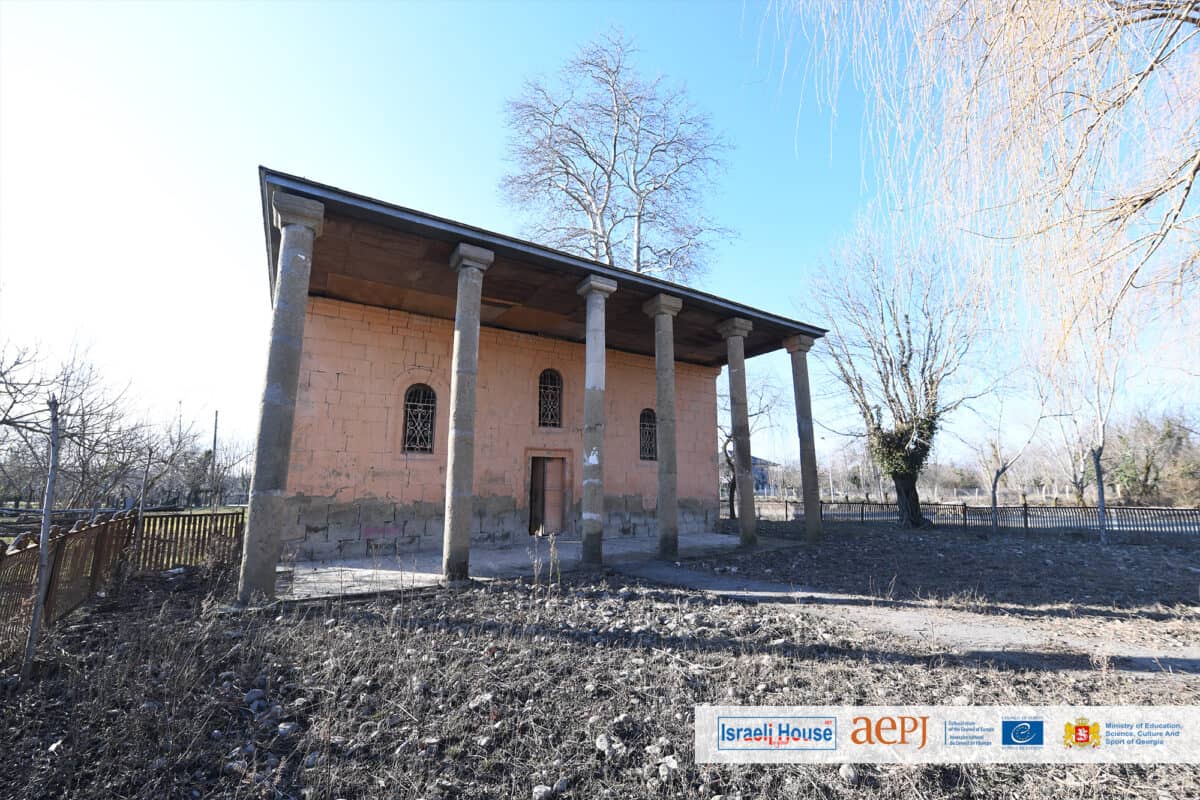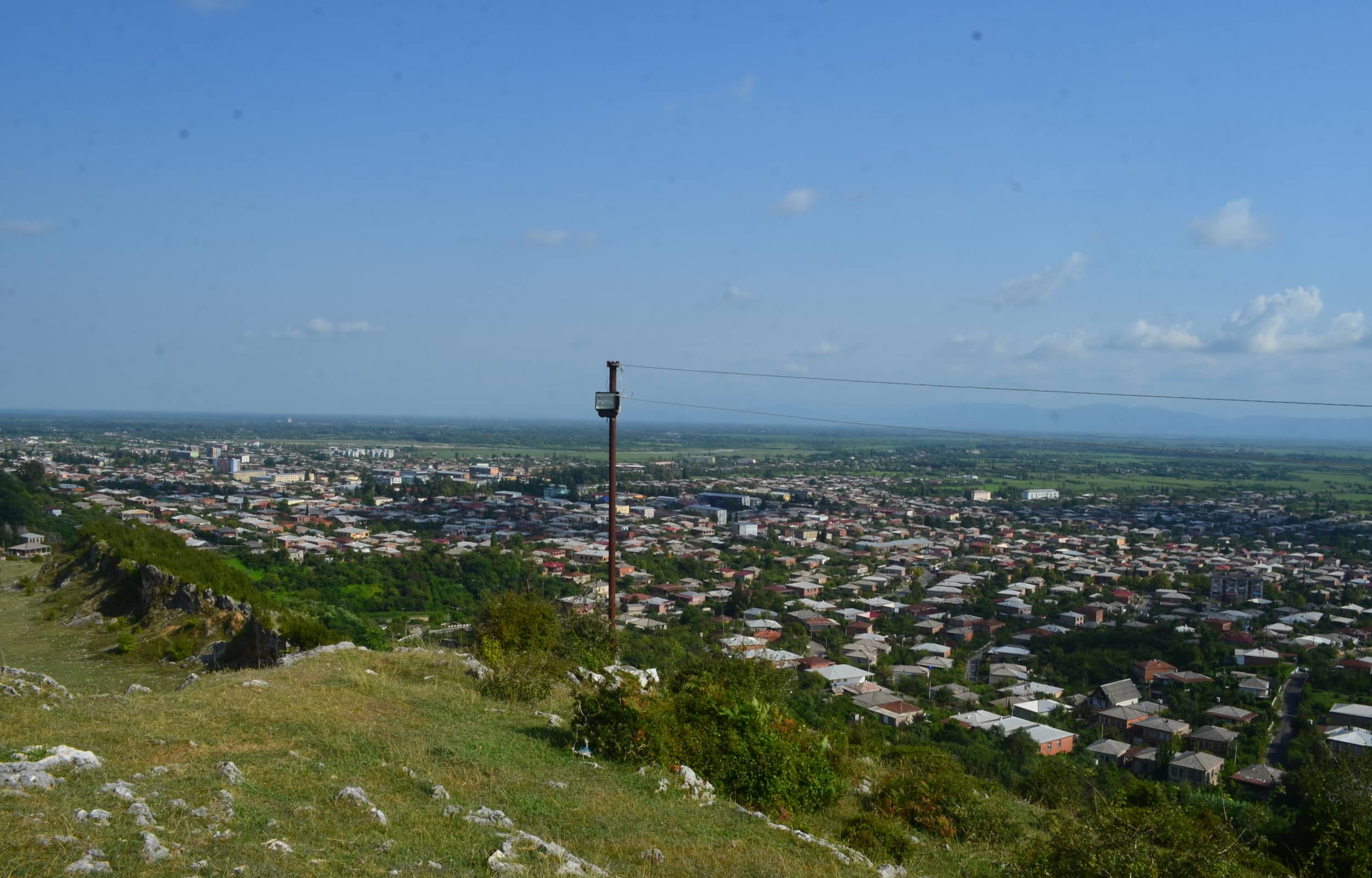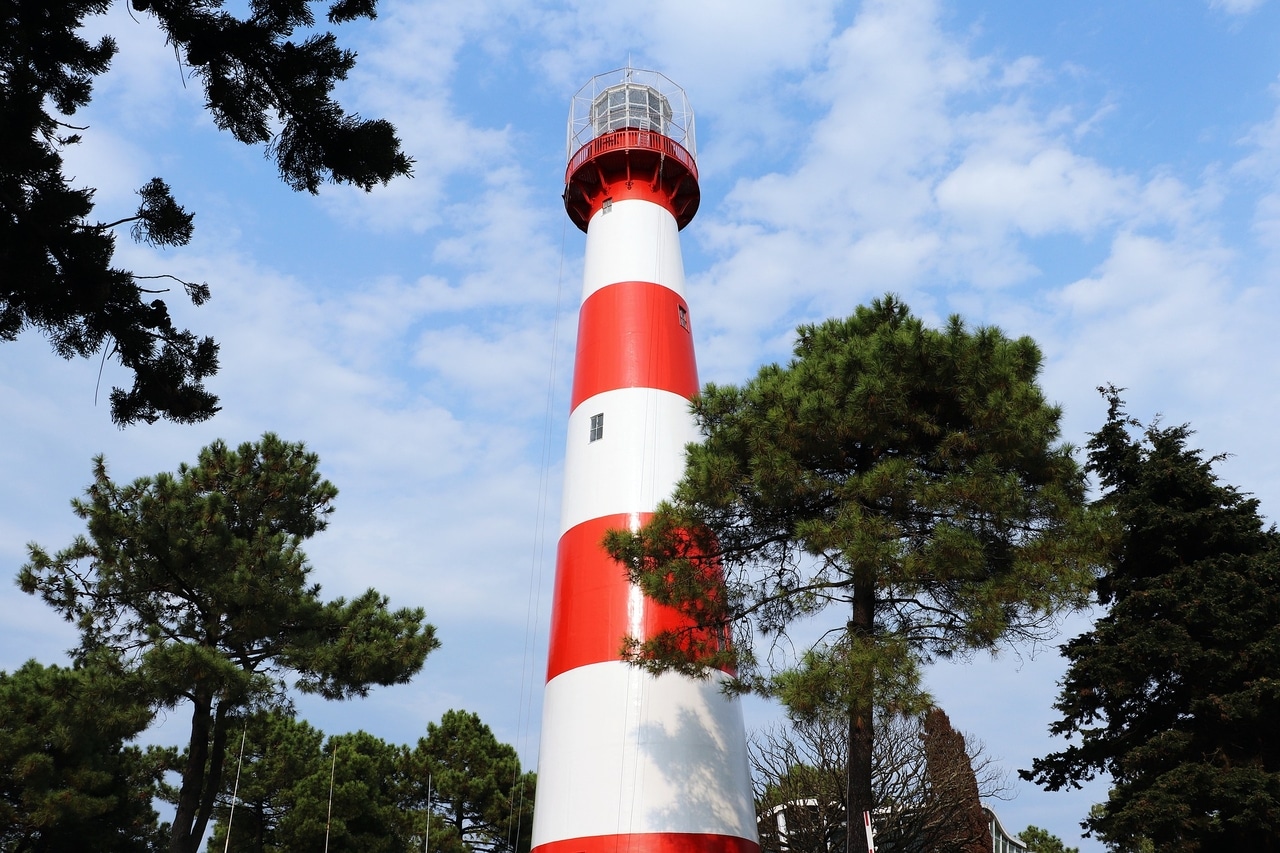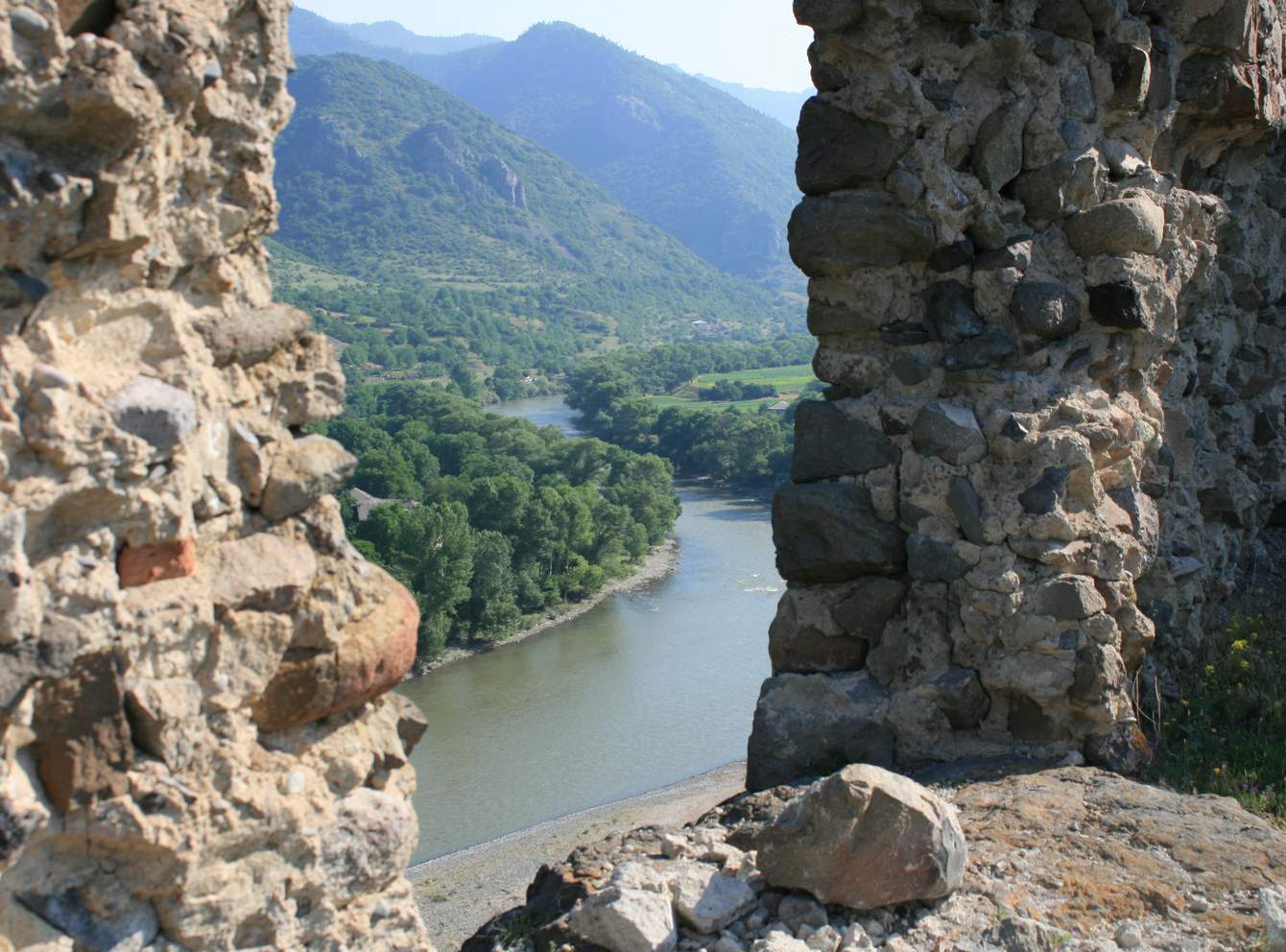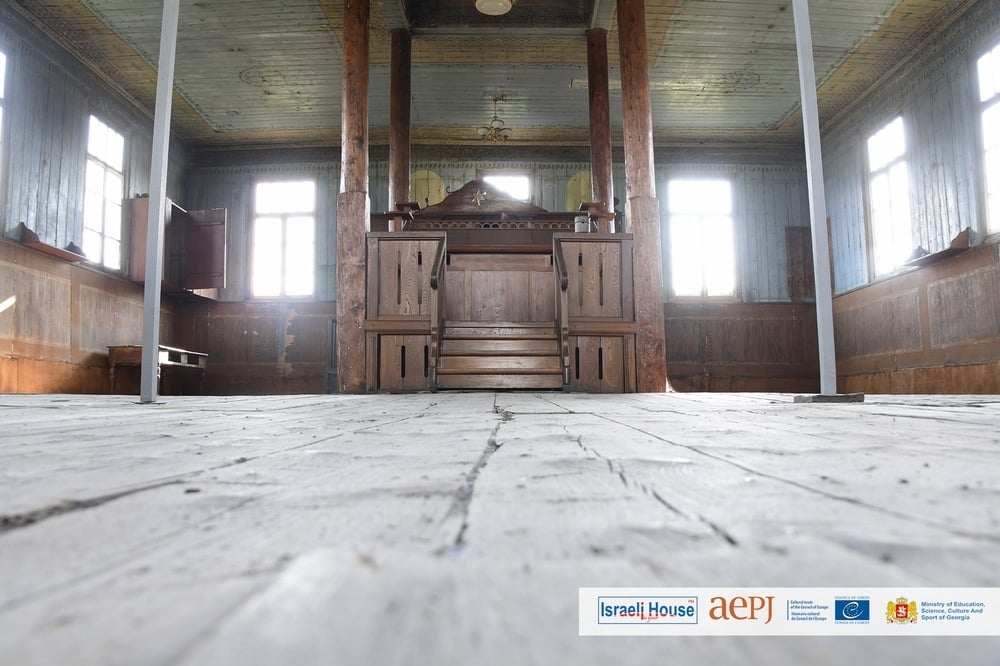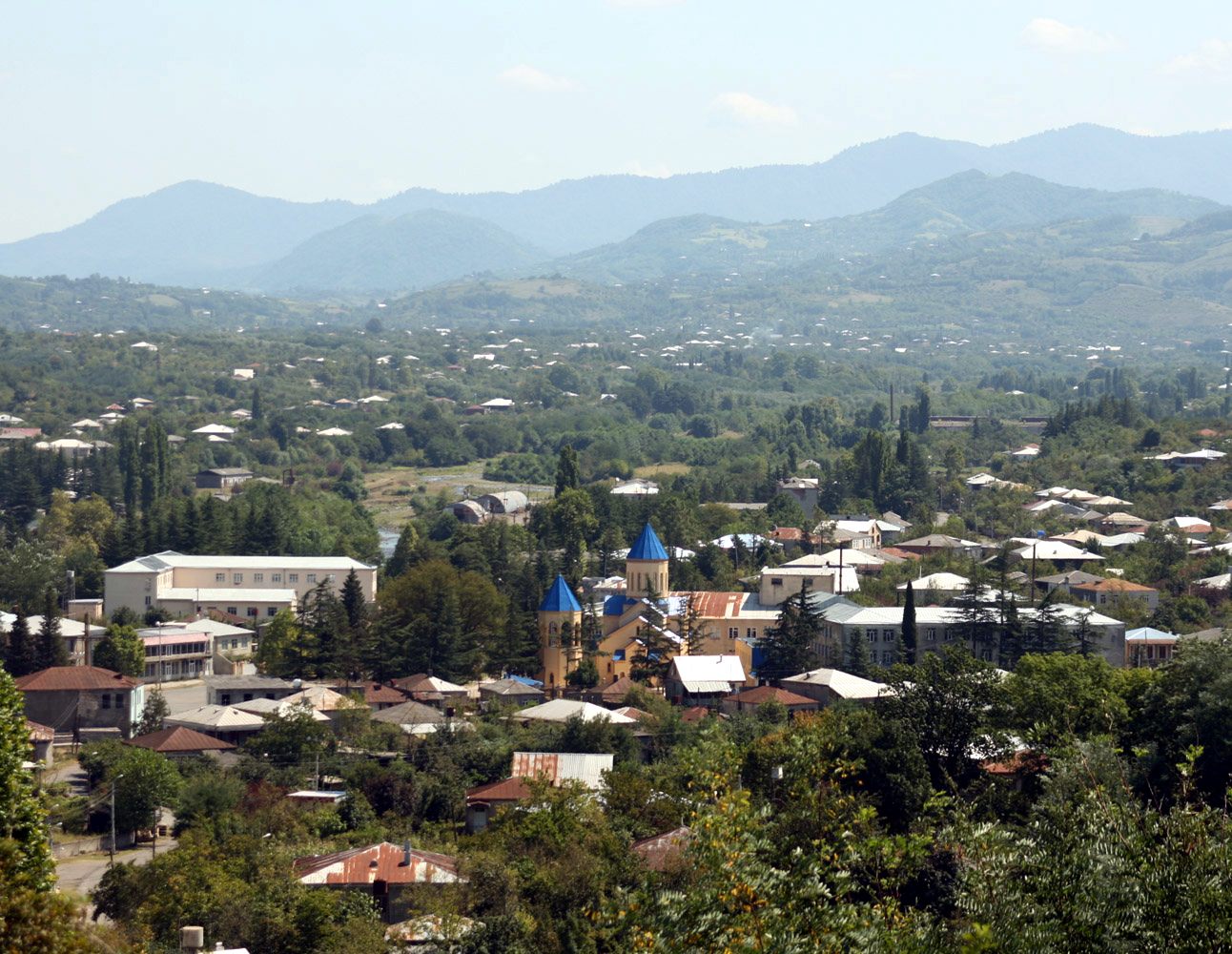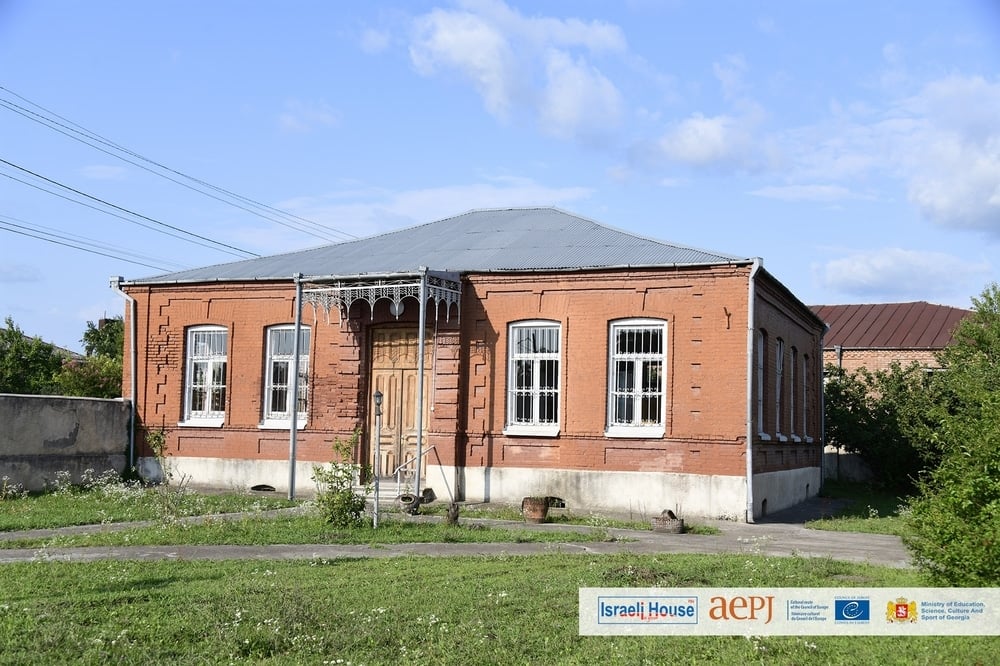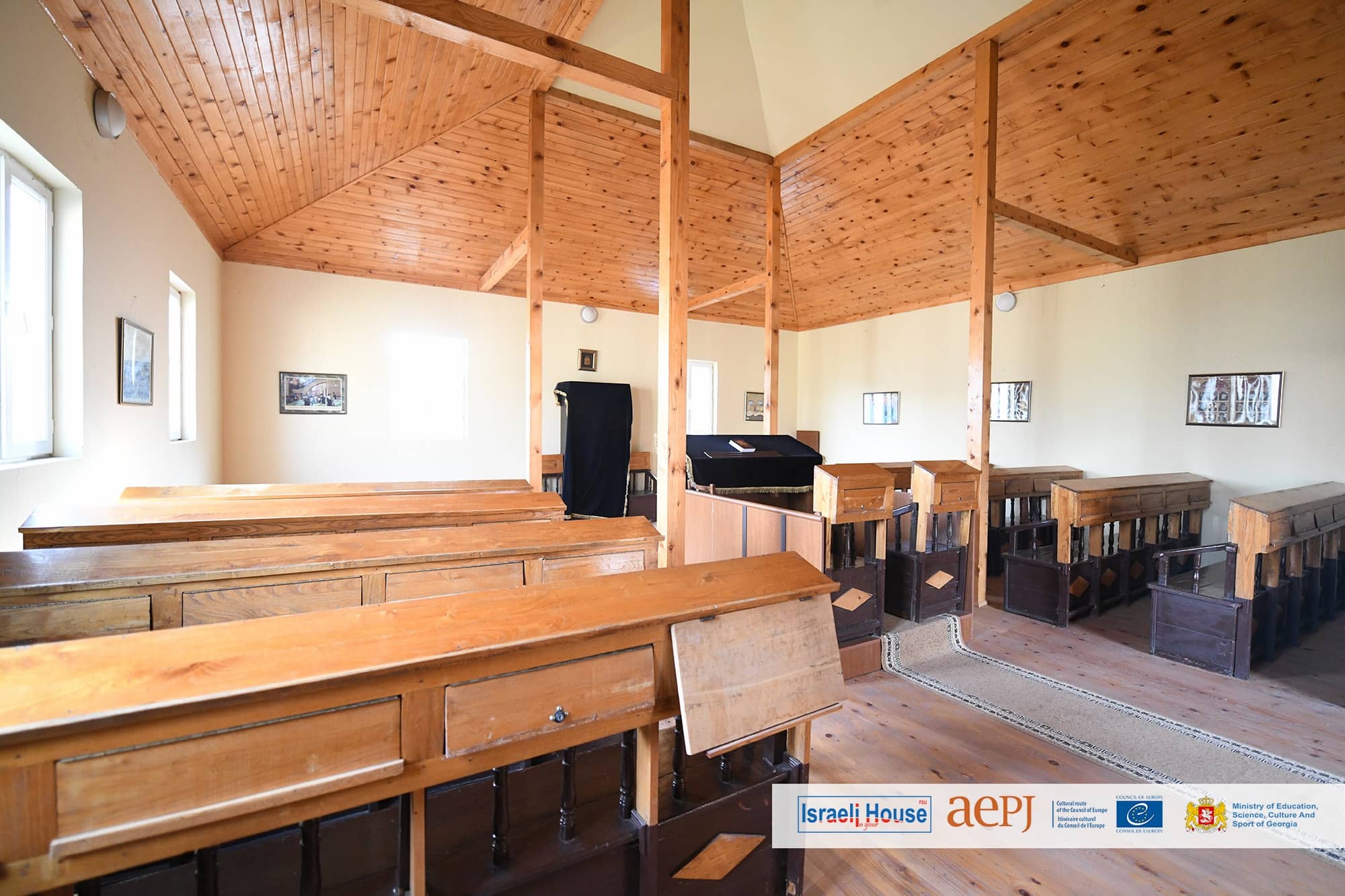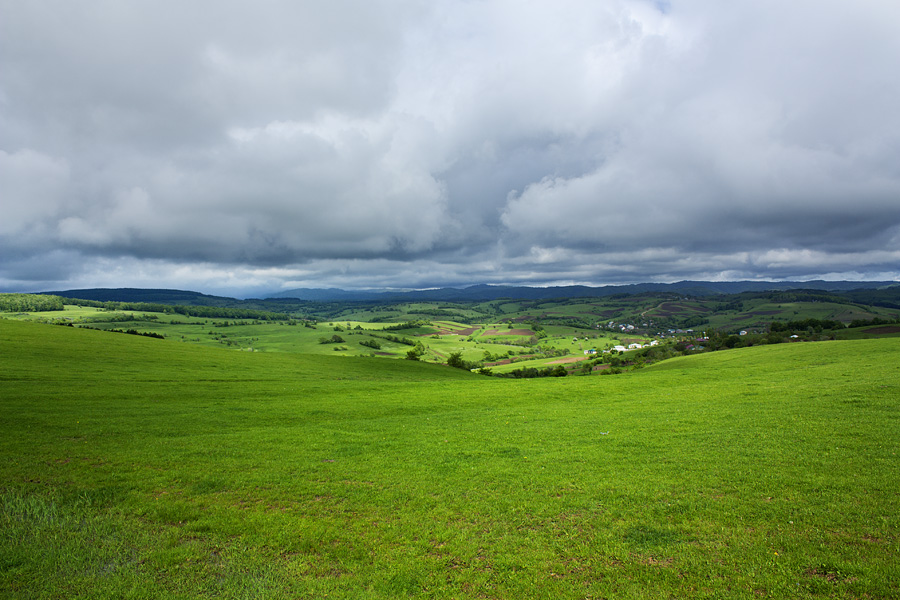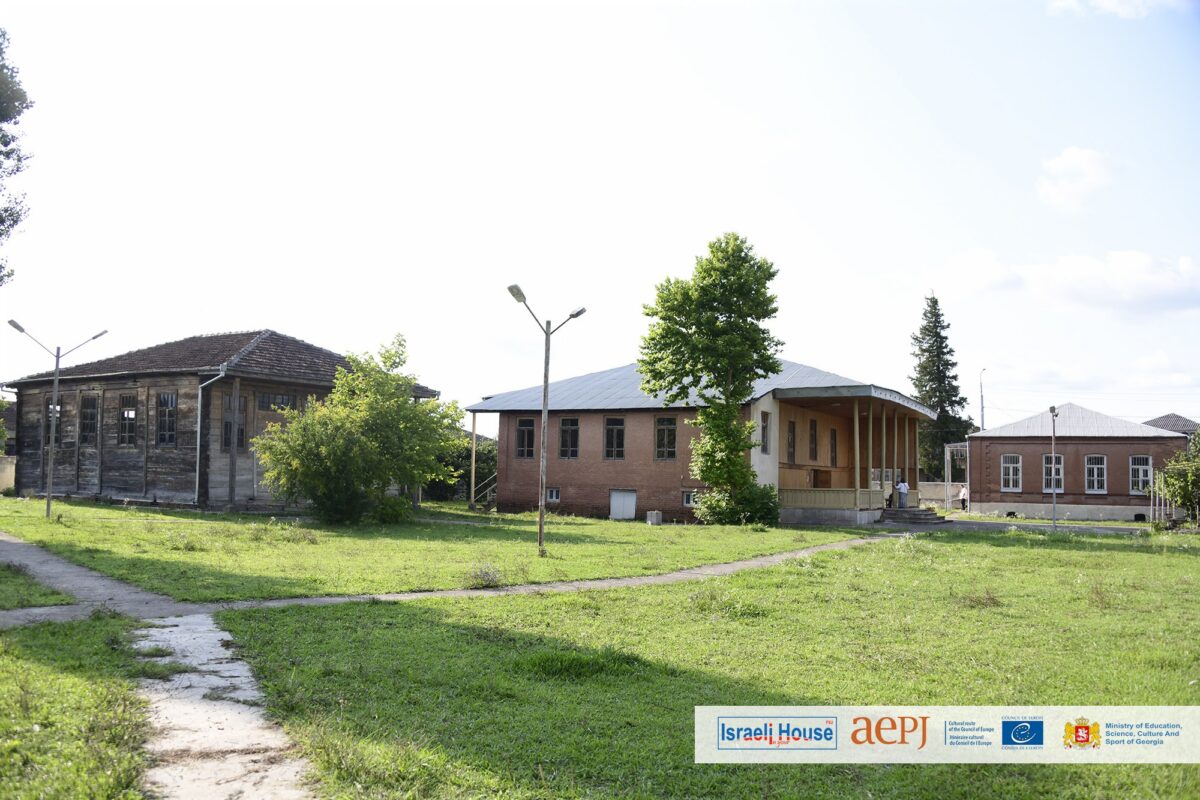Sujuna, a village in Abasha municipality, is located on the bank of the river Abasha. Georgian Jews have been compactly living in Sujuna since the 18th century. During the ruling of David Dadiani Sujuna became one of the centers for trade. The last Jew living in Sujuna passed away in 2000, but Jews still visit the synagogue annually and have a good relationship with the people living in the village. Along with the Synagogue, there is also a graveyard in Sujuna.
Site Tag: Attraction
Town of Senaki
Senaki, located on the right bank of the river Tekhuri, is a town in western Georgia, specifically in Samegrelo-Zemo Svaneti region. We come across the Jews of Senaki or Tskhakaia for the first time in sources from the 19th century. According to one of the sources Itzhak Israelashvili had a debt of 200 Georgian Maneti (Russian Ruble). In 1869 traveler J. Chorny visited Senaki and pointed out in his writings that the Govern of Senaki promised to give him a permit to inhabit Kutaisi, because there was no place to pray in the town. There was a time when 3000 Jews inhabited this area; the number came down to one by the 2018 statistics; by this year there was just one man named Simon Tsitsuashvili left from the community. The Jewish sites you can find in Senaki are Synagogue, which was built in 1969 and the Jewish graveyard. In the 1940s or 1950s there were two active synagogues in the town. One, located in the center of the city, was built in 1880 and was destroyed by the government in 1946. Second one was located at the same place and was a two floor building; it was burnt down in 1963 but by the help of local Jews it was reconstructed. The synagogue was taken away from the Jews and was redesigned into a factory for cooling drinks.
Town of Poti
Poti is a port city in Georgia, located on the eastern Black Sea coast in the region of Samegrelo-Zemo Svaneti in the western part of the country. Jews of Poti inhabited the place in 1958, once the place received the status of the city. Daniel Magashvili’s family was one of the five families who started the Jewish community in Poti. Near the middle of the 20th century there were 200 Jewish families in the city, brought by the need of viable resources. During that time the Rabbi of the city also worked for the Jews of Sokhumi and Batumi. Apart from Ashkenazi Jews there were the Jews of Sujuna, Bandza and Kutaisi. In 1886, 161 Jews inhabited Poti, 54 out of which were there temporarily. In 1945 Jewish community officially registered in the city. The Jewish site you can find at this place is an inactive Poti Synagogue, which was built in 1903.
Atskuri
Atskuri, located on the bank of river Mtkvari, is a village in the Samtskhe-Javakheti region; it is the center of the village community. After Akhaltsikhe, Atskuri is the place where one of the largest Jewish communities is located. Historians assume that Jews came to Samtskhe-Javakheti from Byzantine. According to the historians, Jews experienced discrimination from locals of Atskuri, which was the reason why approximately 80 families moved to Akhaltsikhe. You can find Jewish Graveyard fragments in this village.
Kulashi Old Assembly Building
The oldest wooden synagogue in Kulashi is about 200 years old; it dates back to the 18th century. It was restored a few years ago. Today any visitor can see its stunning ornaments and paintings. The synagogue has the status of national importance.
Town of Vani
Vani, located at the left bank of river Sulori, is a town in the Imereti region of western Georgia. According to scholars “Vani” in old Georgian meant “Home”. Vani is an ancient inhabited district. The oldest archeological object, which was discovered there, dates back to the 8th-6th BC. Shabtay Tsuri also known as Shota Tsotsiashvili, who was Georgian-Jewish politician and diplomat was born here. Regarding the Jewish sites you can find: a Synagogue, which was built in the 19th century and Jewish graveyard there.
Kulashi Second Synagogue
The small synagogue could no longer accommodate Jewish believers; that is why a large synagogue was built with wood in 1902. Every Jewish quarter of Kulashi had its own synagogue before. Next to it we can find a building which was built in 1911; this construction no longer has the second floor but in its existence it was used as a Jewish religious school, where Torah was taught.
Sachkhere Synagogue
The Synagogue of Sachkhere, built in the 19th century and closed in 1990, is located at 167 Sovetskaia Street. Stone material was used for its construction and the community who used to use the building was Georgian Jews. In recent years The agency of Religious Issues of Georgia gave the synagogue to Jews. The ancient synagogue in Sachkhere is currently ruined and abandoned.
Town of Sachkhere
Sachkhere is a town at the northern edge of the Imereti Province in western Georgia, located at the bank of the river Kvareli. It is the center of the Sachkhere Municipality. The place as an inhabited destination was first mentioned in the 17th century. Jewish people have lived in Sachkhere since the 18th century. Georgian historian Vakhushti Bagrationi points out in his works that during this period Jewish inhabitants of Sachckere were under local religious leaders; with the end of dictatorship and the freeing of workers in 1864, Jewish people were freed as well. The Jewish population was divided into three, which meant that they needed three different shrines. It is said that in Imereti’s cities, such as Kutaisi, Sachkhere and Kulashi, Georgian-Hewbrew language was established; it was called Kivruli. It contained a little bit of Hebrew and Aramaic. In 1878, April 4, in a village, Parvisi, the most known blood slander took place, where 9 Jewish merchants were blamed for a murder of a 6-year-old christian girl named Zara Modebadze. It was said that they used her blood to bake “Matsa”. The court took place in Kutaisi; this case was spread around Jewish media in Russia, which caused mobilization of Jewish people led by Baron Ginsburg. Two well-known lawyers, Jewish Krupnik and Russian Alexandrov, managed to deny the charges in 1879, March 13. In Sachkhere this happening was followed by a rebellion of Kutaiseli Jews in 1895. The vast number of Georgian elite were going against religious fanaticism, because it went against Georgian culture and tradition. In 1909 “Talmud Torah” was established in the village, and in 1914 the construction of a new synagogue was finished. After World War II in the first years there were two communities, which registered legally in 1946. One community used a stone building, located on Tsereteli Street and built in the 20th century, to pray; while the other had a wooden house, located on Beria Street, as a synagogue. In 1951 the synagogue located on Tsereteli Street was turned into a bakery. The sites you can find there are an inactive synagogue and a Jewish graveyard.
Town of Kulashi
Kulashi is a small town in Imereti. It had formerly been a home to one of the largest Georgian Jewish communities, size of which has significantly decreased due to several waves of Jewish expatriation to Israel. The Jewish community of Kulashi is made up of the Jews who came to the village from Akhaltsikhe, Lailashi, Bandza, Sujuni, etc. The Jews who were born in Kulashi were called “Kulashelebi” by Georgian Jews. One of the districts in Kulashi was called “Abuashvili’s District” and it was inhabited by families, one of them being “hakham” Abraham Mikhelashvili. Kulashi used to be a beautiful city full of life, where Christians and Jews lived in harmony; Christian and Jew kids used to study in local schools together, Jews usually worked as farmers or merchants, but some also took up in liberal professions. The industry Jews were mostly involved in was growing vine. Kulashi was the center of Jewish traditions and culture; Kulashi was referred to as “Georgia’s Jerusalem”.
